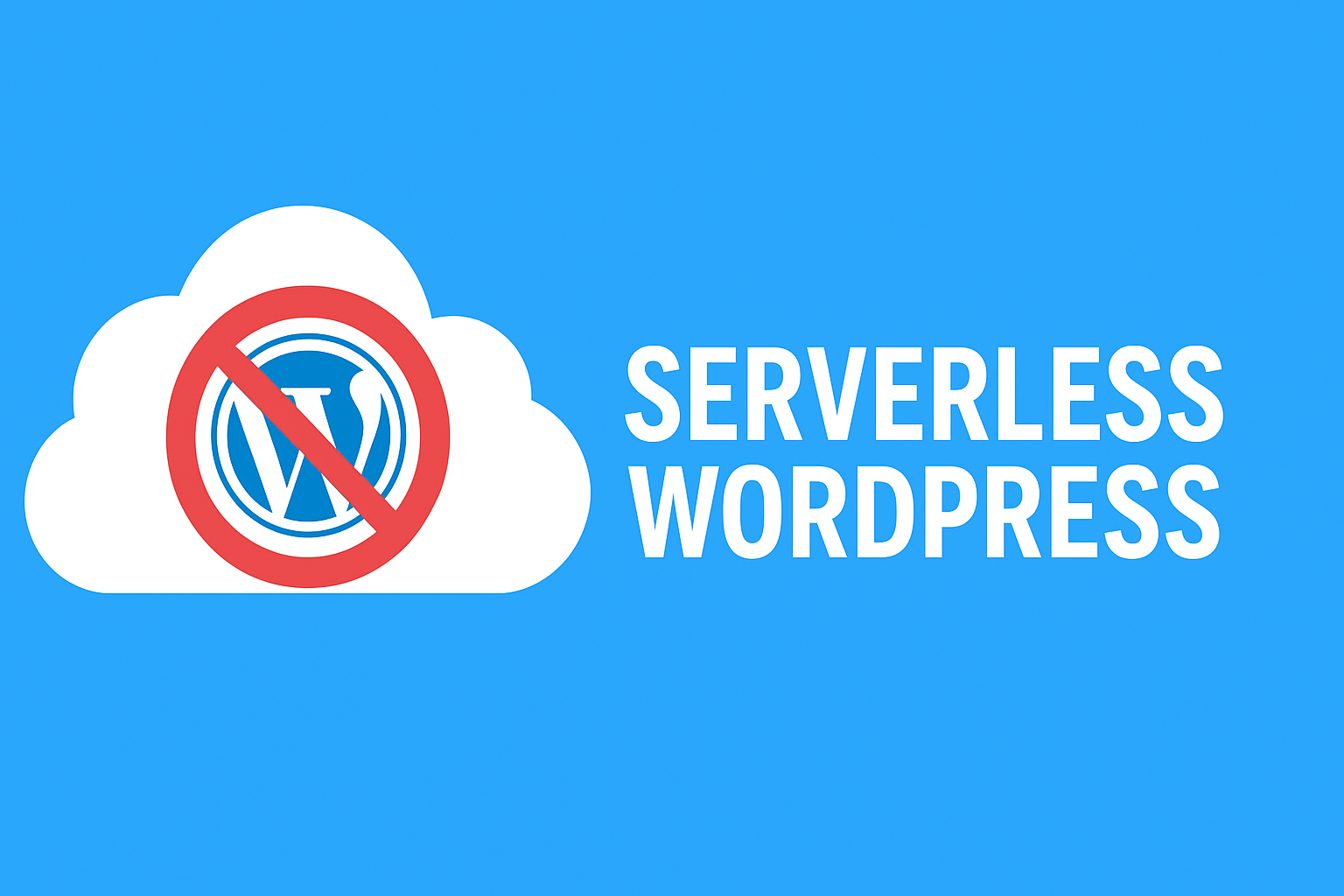The Rise of Serverless WordPress: Why Traditional Hosting Is Becoming Obsolete
Introduction
Traditional WordPress hosting is being replaced by a new paradigm — serverless architecture. Instead of relying on shared servers, VPS, or dedicated hosting, serverless WordPress runs on demand, scaling automatically and reducing costs. This is the future of WordPress infrastructure — fast, cost-efficient, and maintenance-free.
Let’s explore why serverless WordPress is revolutionizing the way we build and deploy websites and how developers can take advantage of it in 2025.
1. What Does “Serverless” Really Mean?
Serverless doesn’t mean “no servers.” It means you don’t manage them. Instead of configuring Apache or Nginx, you deploy code that runs automatically when triggered — such as an HTTP request or a database event.
Cloud providers like AWS Lambda, Vercel, and Cloudflare Workers handle the infrastructure.
In a serverless WordPress setup, PHP is replaced (or complemented) by lightweight APIs and static rendering.
2. The Evolution of WordPress Architecture
WordPress started as a monolithic CMS — everything (frontend, backend, and database) ran on one server.
Now, with headless WordPress and Jamstack architecture, the platform is evolving toward:
- Static frontends built with React, Vue, or Svelte
- APIs powered by the WordPress REST API or GraphQL
- Serverless functions that handle dynamic actions
This architecture makes WordPress faster, safer, and infinitely scalable.
3. Benefits of Going Serverless
- Auto-scaling: Handle millions of visits without upgrading servers.
- Pay-per-use: You only pay when your app runs.
- Zero maintenance: No server configuration, patching, or downtime.
- Improved performance: Global CDN and edge caching.
- Security: Fewer entry points and no exposed PHP backend.
Developers can deploy instantly and focus on writing code — not managing infrastructure.
4. Tools Enabling Serverless WordPress
Several tools now make serverless WordPress a reality:
- Strattic – Converts WordPress sites to static HTML served via CDN.
- WP Engine Atlas – A hybrid headless and serverless platform.
- Vercel & Netlify – Perfect for deploying decoupled WP frontends.
- AWS Lambda – The foundation for WordPress API functions.
- Cloudflare Workers – Fast edge execution for WordPress endpoints.
These services combine WordPress flexibility with serverless scalability.
5. Serverless WordPress in Action
A typical setup in 2025 might look like this:
- WordPress backend runs on a managed host or headless instance.
- Static content and pages are served from a global CDN.
- Dynamic actions (login, search, payments) run via serverless functions.
- Everything scales automatically — no cPanel or cron jobs needed.
This hybrid setup provides the best of both worlds: WordPress UX + modern performance.
6. The Future of WordPress Hosting
The days of shared hosting are fading. Developers no longer want to worry about server limits, PHP versions, or slow loading times.
Serverless infrastructure enables instant scalability and global reach.
With tools like WP2Static, Frontity, and Faust.js, WordPress is entering a new age — one where traditional hosting is truly obsolete.
Conclusion
Serverless WordPress represents the future of web hosting — lightweight, scalable, and cost-effective.
As more developers adopt serverless functions and static architectures, WordPress will continue to thrive — not as a legacy CMS, but as a modern web framework.
The next generation of WordPress won’t need a server. It’ll live entirely in the cloud.
🔍 Yoast SEO Parameters
- Slug: serverless-wordpress-future
- Meta Title: The Rise of Serverless WordPress: Why Traditional Hosting Is Becoming Obsolete
- Meta Description: Discover how serverless WordPress is replacing traditional hosting. Learn how AWS, Vercel, and Cloudflare Workers are reshaping WordPress infrastructure in 2025.
- Focus Keyphrase: serverless WordPress
- Tags: WordPress, serverless, headless WordPress, cloud hosting, Vercel, AWS Lambda, Cloudflare Workers, WP Engine Atlas, WordPress 2025, static sites, WordPress hosting, Jamstack, web performance, scalability




